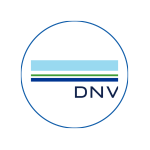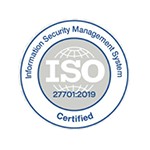Navigating Challenges in Large-Scale Ship Management: Strategies and Solutions
Navigating Challenges in Large-Scale Ship Management: Strategies and Solutions
Managing large-scale ships presents unique challenges that require specialized strategies and solutions. From operational complexities to resource allocation and compliance, large vessels demand a comprehensive approach to ensure smooth operations. This blog post explores the common challenges faced in large-scale ship management and provides strategies, best practices, and the role of ship management software in overcoming these hurdles.
Best Assistance For Ship Management
+90 850 520 0259
Overview of the Challenges in Large-Scale Ship Management
Managing large-scale ships introduces a host of challenges that are distinct from those encountered in smaller vessels. These challenges include complex logistics, crew management, maintenance requirements, regulatory compliance, and efficient resource allocation. The sheer scale of these ships adds layers of intricacy to various operational aspects, demanding careful planning and execution.
Analysis of Common Pain Points and Bottlenecks
Large-scale ship management often experiences pain points and bottlenecks that impact efficiency and profitability. These can include inefficient communication and coordination between crew members, limited visibility into real-time data, delays in maintenance and repairs, difficulties in optimizing fuel consumption, and challenges in ensuring compliance with stringent regulations. These pain points can lead to increased downtime, higher costs, and compromised safety and operational performance.
Strategies and Best Practices for Effective Management
To effectively manage large-scale ships, several strategies and best practices can be implemented. These include:
Streamlined Communication and Collaboration: Foster effective communication channels between crew members, departments, and onshore teams to enhance coordination and decision-making.
Robust Maintenance Planning: Implement comprehensive planned maintenance systems to schedule and track maintenance tasks, reducing unplanned downtime and ensuring optimal performance.
Compliance Management: Develop robust processes and systems to monitor and ensure compliance with industry regulations and standards, minimizing risks and penalties.
Crew Training and Development: Invest in continuous training and development programs to enhance crew skills, knowledge, and operational efficiency.
Performance Monitoring: Implement performance monitoring systems to track key performance indicators (KPIs), identify areas for improvement, and optimize operational processes.
Supply Chain Optimization: Optimize procurement and inventory management processes to ensure the timely availability of critical supplies, minimizing delays and downtime.
Role of Ship Management Software
Ship management software plays a vital role in addressing the challenges of large-scale ship management. These software solutions provide comprehensive features and functionalities, including crew management, planned maintenance systems, compliance tracking, procurement management, and performance monitoring. By leveraging ship management software, companies can streamline operations, enhance communication and collaboration, optimize maintenance planning, monitor compliance, and analyze real-time data. The software's intuitive interfaces and analytics capabilities empower decision-makers with actionable insights, enabling them to make data-driven decisions for efficient ship management. Additionally, these software solutions integrate with other business systems, facilitating seamless information flow and eliminating silos.
Managing large-scale ships requires a strategic approach to address the unique challenges encountered. By implementing effective strategies and best practices, maritime companies can overcome pain points and bottlenecks, ensuring efficient operations, regulatory compliance, and improved profitability. The role of ship management software cannot be overstated in streamlining processes, enhancing communication, optimizing maintenance, and providing real-time insights for data-driven decision-making. By embracing these strategies and leveraging technology solutions, companies can navigate the challenges of large-scale ship management and achieve operational excellence.
Certificates & Class Type Approvals
Privacy Verified & Quality Validated in NOZZLE

Class Type Approval
by DNV

Class Type Approval
by CLASS NK

Information Security
Management

